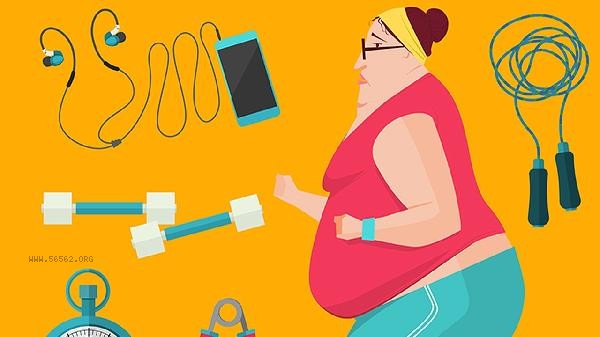Weight loss drugs should be used under the guidance of a doctor. Currently, there is no absolute fastest, most effective, and non rebounding drug. Commonly used prescription drugs in clinical practice mainly include Olisitate, Liraglutide, and Fentemine Topiramate Compound Preparations. The weight loss effect varies from person to person, and it is necessary to combine dietary control and exercise to reduce the probability of rebound.

1. Orlistat
Orlistat is a gastrointestinal lipase inhibitor that works by blocking the absorption of some fats in the diet. Suitable for obese patients with a body mass index exceeding 28, common adverse reactions include oily stools and increased gastrointestinal exhaust. It should be used in conjunction with a low-fat diet, as long-term use may affect the absorption of fat soluble vitamins.
II. Lilalutide
Lilalutide is a GLP-1 receptor agonist, which was originally used for the treatment of diabetes, and was later approved for obesity. To reduce weight by delaying gastric emptying and increasing satiety, subcutaneous injection is required. Gastrointestinal reactions such as nausea and vomiting may occur, and patients with medullary thyroid cancer should avoid using it.
3. Fentemine Topiramate Compound
This compound formulation reduces weight through a dual mechanism of appetite suppression and increased energy expenditure. Fentemine is a sympathomimetic amine drug, while topiramate has appetite regulating effects. May cause side effects such as dry mouth, insomnia, and sensory abnormalities. Patients with cardiovascular disease should use with caution.

Fourthly, bupropion and naltrexone
This combination drug controls appetite by regulating the dopamine and norepinephrine systems, while blocking opioid receptors to affect eating behavior. Suitable for obese patients with binge eating behavior, which may cause adverse reactions such as headache and dizziness. It is contraindicated for epilepsy patients.
V. Metformin
Metformin is originally a hypoglycemic drug that has a certain weight loss effect on obese patients with insulin resistance. It works by improving insulin sensitivity and inhibiting liver glycogen breakdown. Common side effects include gastrointestinal discomfort, and it is contraindicated for those with severe renal dysfunction.

Drug weight loss must strictly follow medical advice and cannot be purchased or taken on one's own. All weight loss drugs may have side effects and there is a risk of rebound after discontinuation. It is recommended to use medication as an auxiliary method, combined with scientific dietary management and regular exercise, in order to achieve long-term results. A low glycemic index diet combined with aerobic exercise and strength training to establish a healthy lifestyle is the fundamental way to control weight. Regularly monitor weight and physical indicators, and seek professional guidance from nutritionists and sports coaches when necessary.









Comments (0)
Leave a Comment
No comments yet
Be the first to share your thoughts!